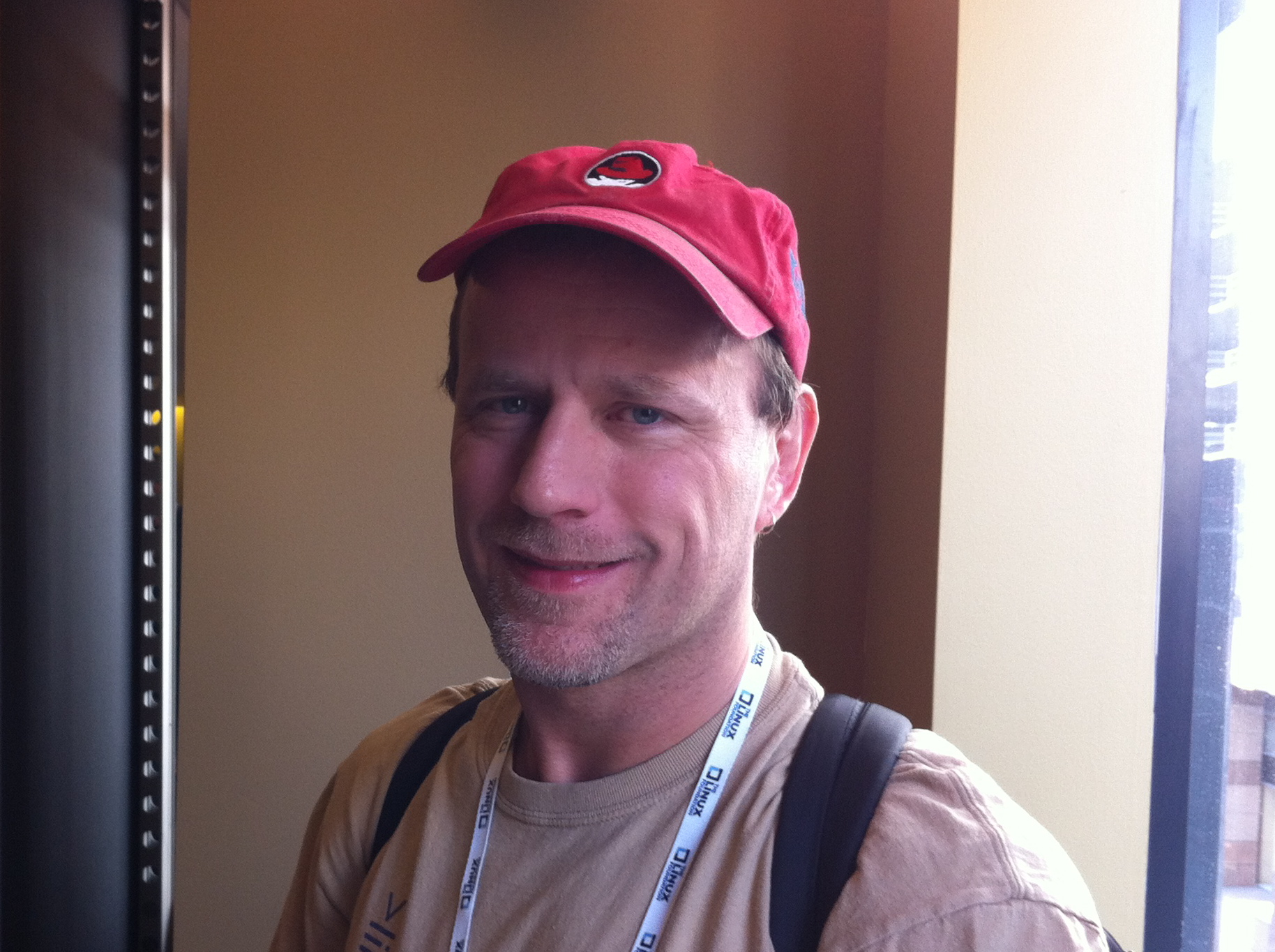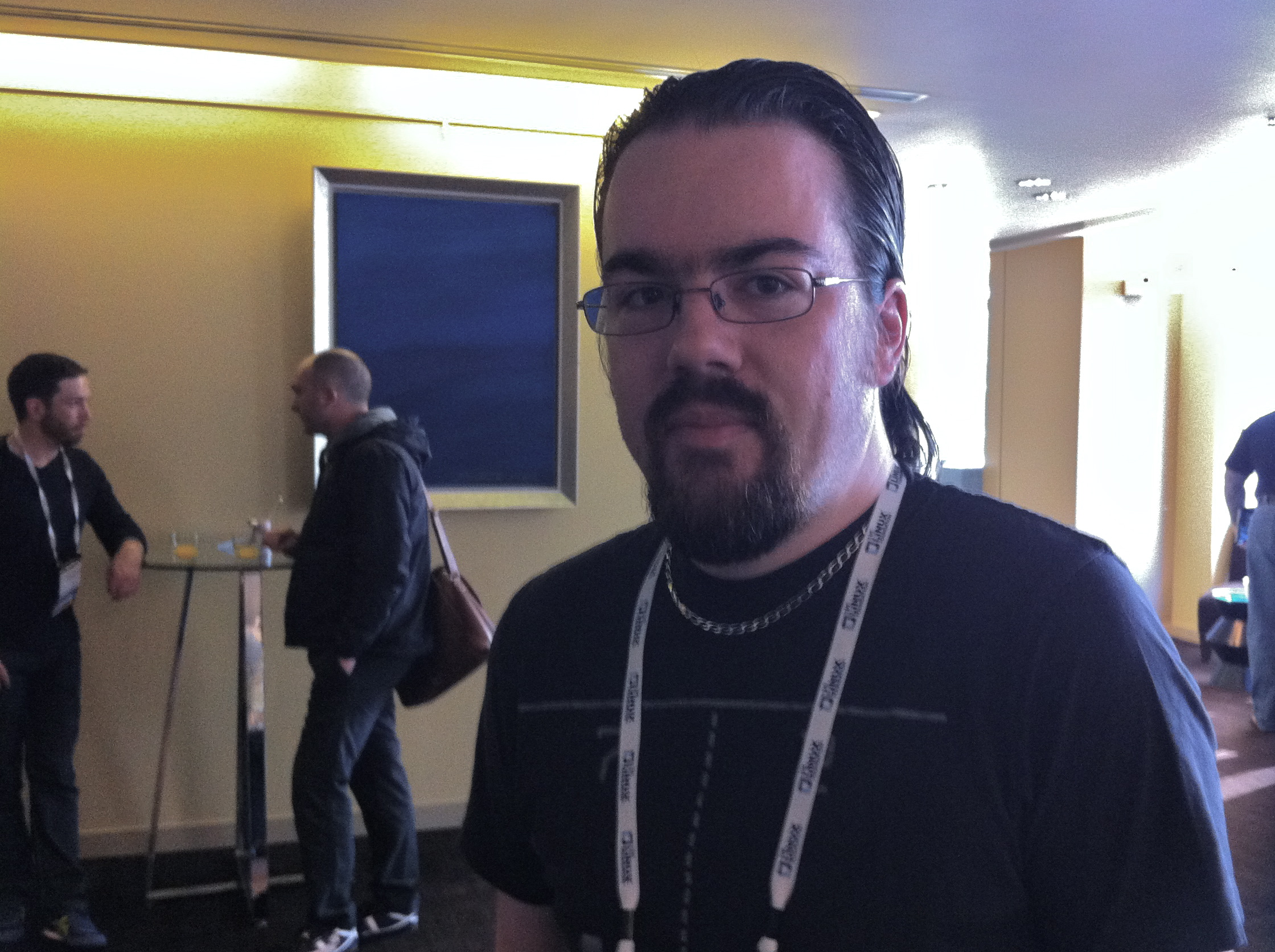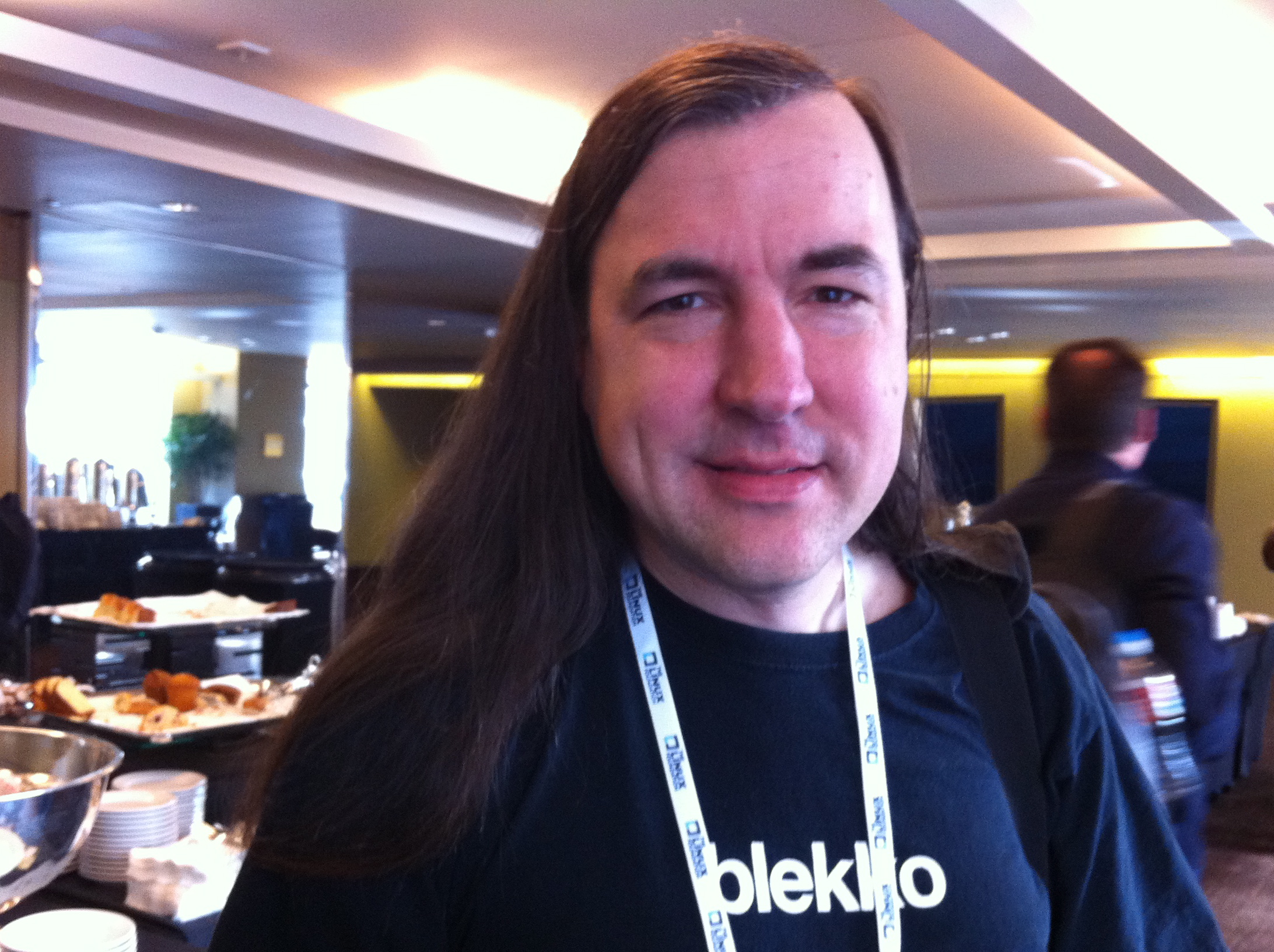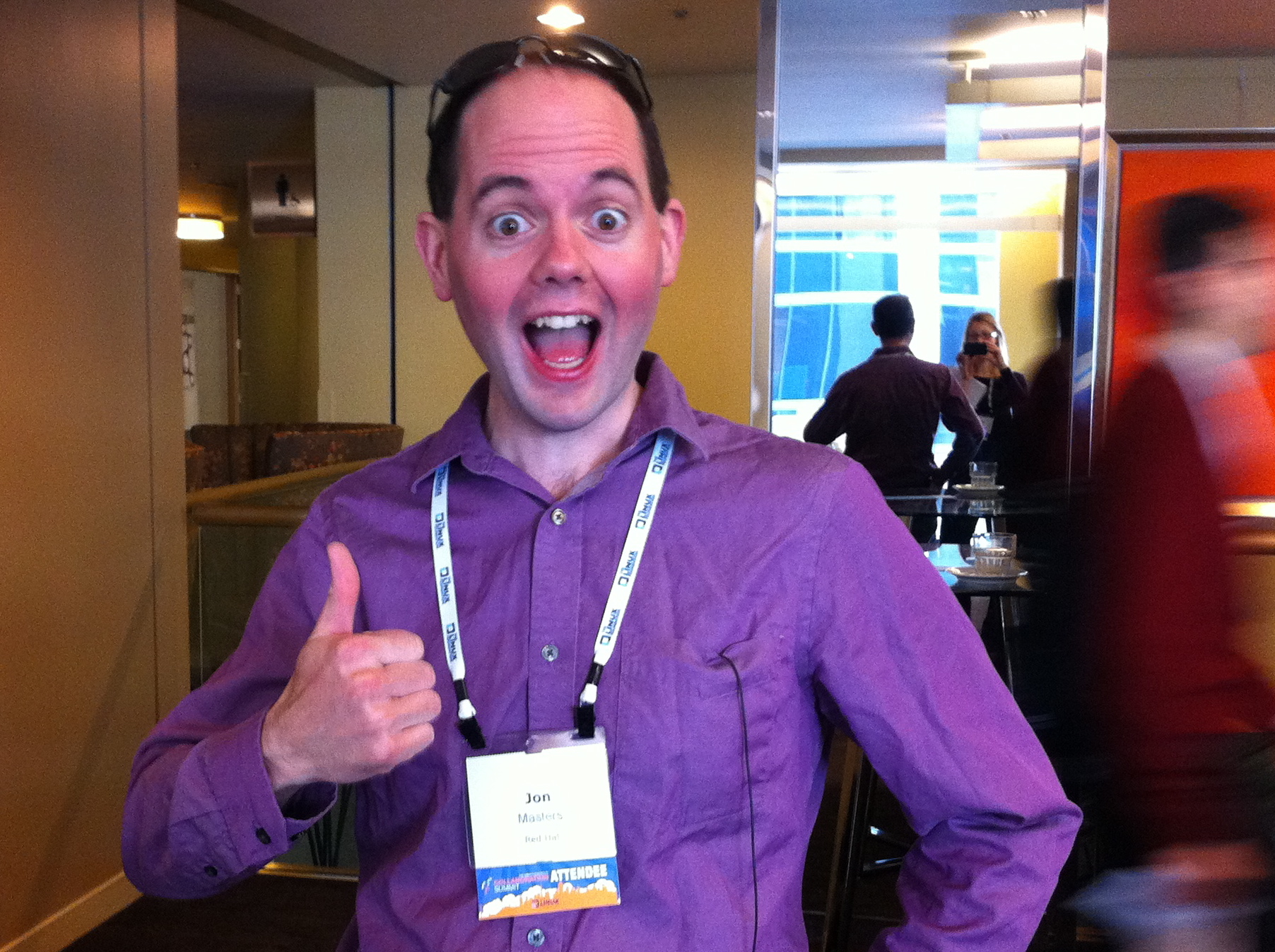As the annual Linux Foundation Collaboration Summit was wrapping up yesterday in San Francisco, we asked a few attendees to weigh in on their favorite sessions.
The invitation-only event brought together 430 Linux kernel developers, Linux Foundation members and other Linux community insiders for keynote talks, work sessions, training, project updates, industry trends and networking.
On day one, attendees heard seven keynotes on a variety of subjects from Facebook’s Open Compute Project, to upcoming Linux kernel updates and trends in cloud computing. The next two days were devoted to technical, legal and project-based sessions. (See the full schedule on the Linux Foundation events website.)
What was your favorite session at Collaboration Summit 2012?

“Mine! (Laughs) Removing stop machine from the tracing infrastructure. I got a lot of really good feedback. But really, the best session is the hallway track. Between sessions you find people and it’s when you get the most work done. Usually you get to sit people down and start hashing things out. People come from all over the world. It was weird, last night in the bar I was sitting there talking with eight developers, and I was the only American there.” – Steven Rostedt, real-time Linux kernel maintainer at Red Hat (left).

“UEFI. It’s pretty entertaining. I’m looking forward to fireworks. This conference mostly isn’t contentious at all, which is quite nice. People get along. They’re friendly, which you don’t usually see at conferences. We get together and argue. We need to. But the UEFI stuff is probably going to be contentious. We’ve had nothing but issues for the last year. If everything is magically resolved, that will be nice. But I expect fireworks.” – Adam Conrad, Canonical (right).
“The Yocto project sessions. I have been involved with the parent project for 8 years. What we did in the Yocto session was clear up all the confusion for new users. We explained how it works and how it was designed. So it was really useful.” – Koen Kooi, software engineer, CircuitCo, which manufactures the BeagleBoard(not pictured).

“On the first day there was a session on the near future of the kernel, it’s a panel discussion of top Linux developers. Every year it’s really interesting and this year it was really great, as usual, seeing the top guns interacting the way they do with a really great sense of humor. You get an idea of where things are headed next year.
It’s interesting to see the people who end up at the top. You might think that, because they all used to be super coders and a lot of them still write a lot of code, you could actually wind up with a lot of antisocial people. But none of them really are that way. So it’s really great to see them in person being really funny all the time.” – Greg Lindahl, CTO, Blekko search engine (left).

“Microsoft was my favorite presentation. It takes a lot of guts to be two guys from Microsoft showing up at a major Linux conference and getting up there to talk about how their company is embracing working with Linux. That is just awesome.
And now that they’re getting out of the staging tree and getting Windows Hyper-V support into Linux that’s what you want to see. You want to see everybody working together. It’s collaboration.
We’ve all grown up and gotten to the point where bashing Microsoft used to be fun. I think it still is fun but I think we’ve tempered that with a bit more pragmatism. We understand that open source can be on a Windows platform, there’s not just Linux or the kernel. There’s a lot of open source software out there and if we work together we can all win.” – Jon Masters, prinicipal software engineer, Red Hat (right).


